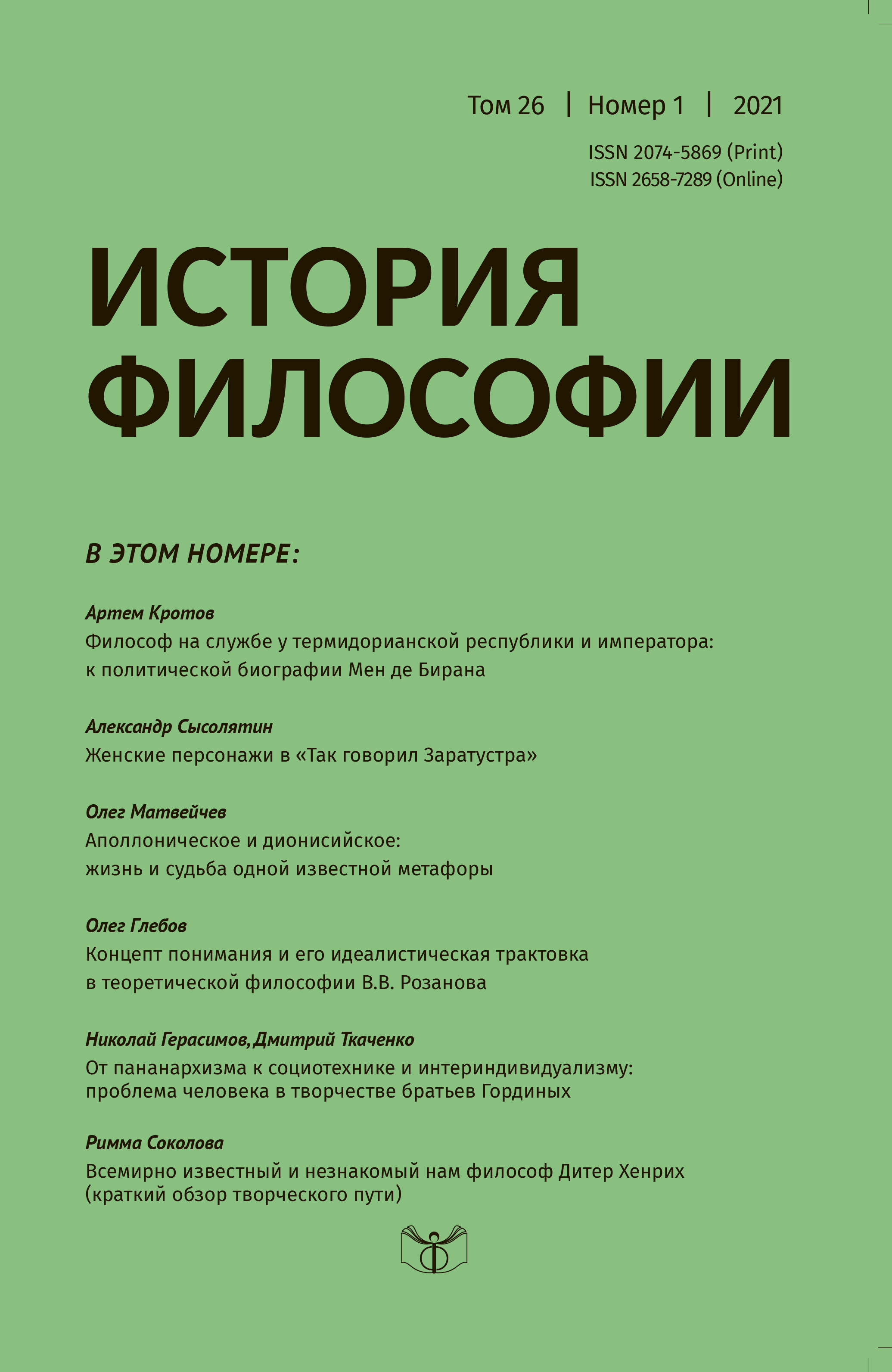The Concept of Understanding and its Idealistic Interpretation in the Theoretical Philosophy of V.V. Rozanov
Keywords:
Russian philosophy, theory of cognition, problem of understanding, philosophy of V.V. Rozanov, the problem of cognizability of the external world, schemes of mind, meaning, event, preunderstanding, potentialityAbstract
The article is devoted to the analysis of the key provisions of Rozanov’s early theoretical treatise “On Understanding”, which is a model of Russian philosophical idealism. It shows that Rozanov’s work, which anticipated some ideas of hermeneutics and phenomenology in the 20th century, remained unnoticed within the Russian philosophical tradition. The purpose of this article is to reveal the basis of Rozanov’s thesis that the first idea of reason potentially contains all knowledge in unity. The author analyzes the following aspects of Rozanov’s work related to the problem of understanding: the motive and purpose of writing a treatise, the theme of innate ideas, the concept of vivacity of ideas, the theory of potential knowledge and its subject, the cyclical process of understanding, the difference between mind and reason, understanding from knowledge. Rozanov’s interpretation of the idea of reason, the scheme of reason, and the doctrine of number are also reconstructed. The paper concludes: the fundamental thesis of Rozanov about the embeddedness of all knowledge in the unity of the first idea of reason is justified by the primacy of the position of the idea in the taxonomy of cognitive acts. And also, by the fact that the purpose of the cognitive process pushes reason to itself.

